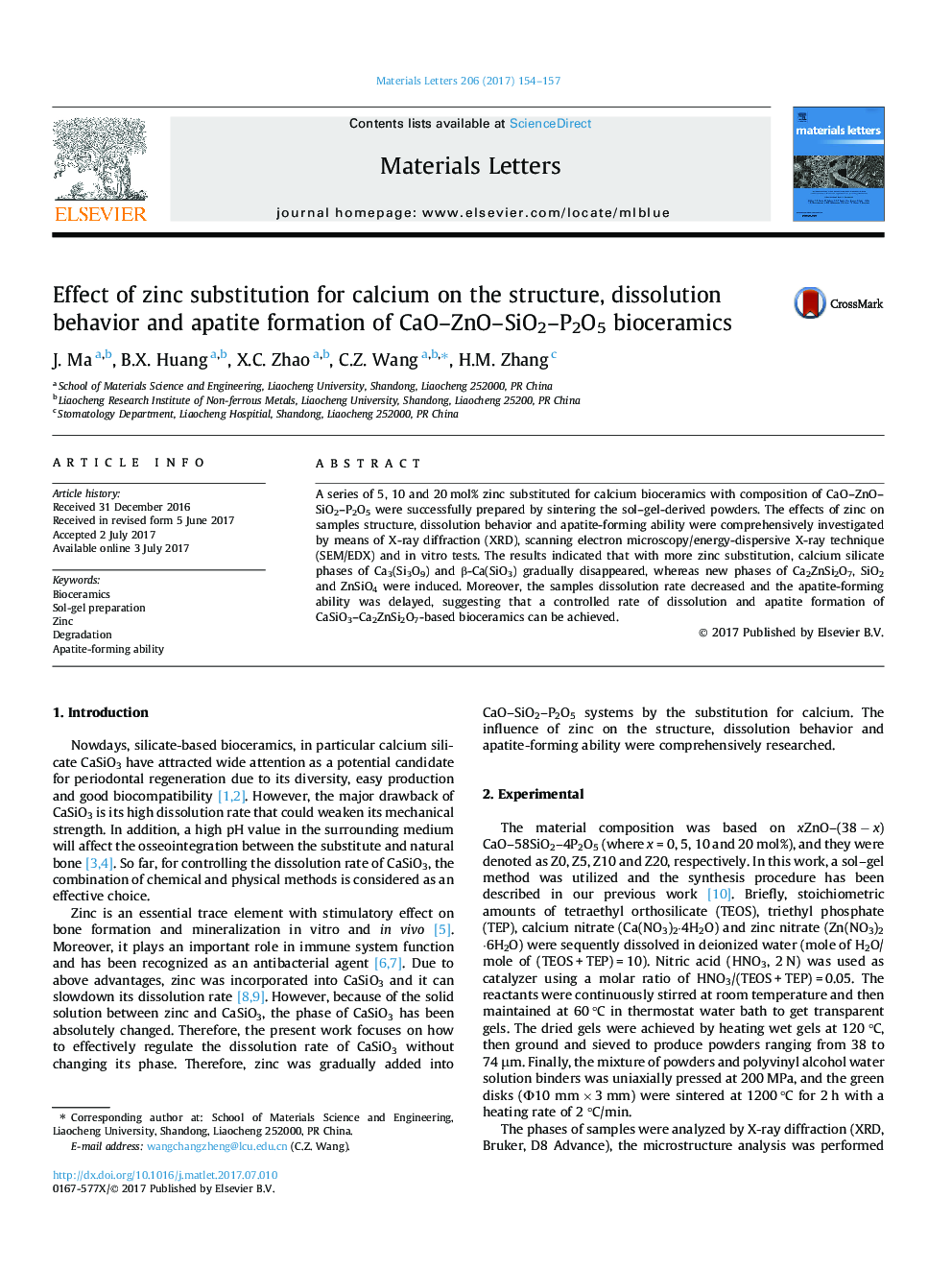| Article ID | Journal | Published Year | Pages | File Type |
|---|---|---|---|---|
| 5463447 | Materials Letters | 2017 | 4 Pages |
Abstract
A series of 5, 10 and 20 mol% zinc substituted for calcium bioceramics with composition of CaO-ZnO-SiO2-P2O5 were successfully prepared by sintering the sol-gel-derived powders. The effects of zinc on samples structure, dissolution behavior and apatite-forming ability were comprehensively investigated by means of X-ray diffraction (XRD), scanning electron microscopy/energy-dispersive X-ray technique (SEM/EDX) and in vitro tests. The results indicated that with more zinc substitution, calcium silicate phases of Ca3(Si3O9) and β-Ca(SiO3) gradually disappeared, whereas new phases of Ca2ZnSi2O7, SiO2 and ZnSiO4 were induced. Moreover, the samples dissolution rate decreased and the apatite-forming ability was delayed, suggesting that a controlled rate of dissolution and apatite formation of CaSiO3-Ca2ZnSi2O7-based bioceramics can be achieved.
Related Topics
Physical Sciences and Engineering
Materials Science
Nanotechnology
Authors
J. Ma, B.X. Huang, X.C. Zhao, C.Z. Wang, H.M. Zhang,
